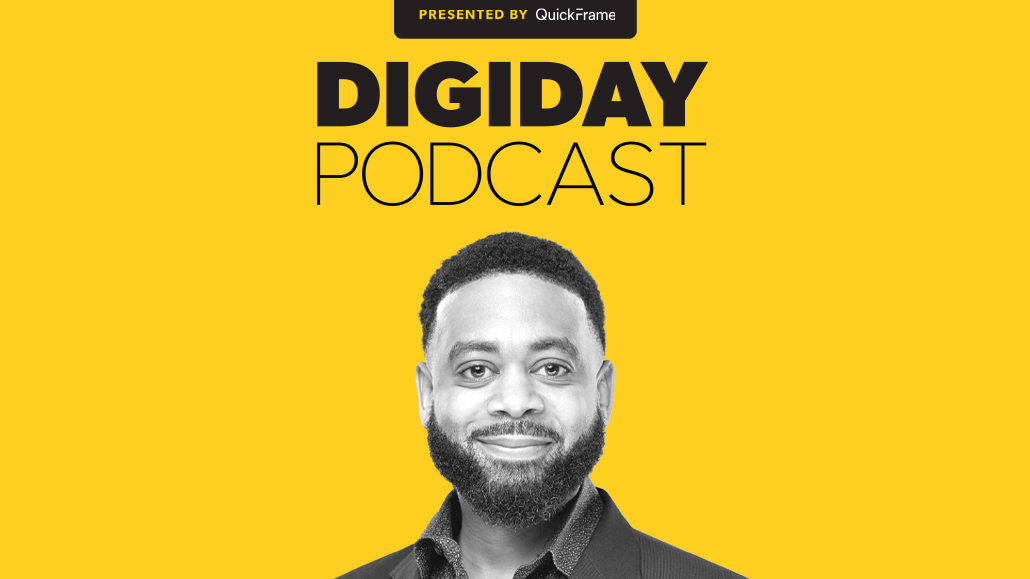Secure your place at the Digiday Media Buying Summit in Nashville, March 2-4
Essence Global’s Therran Oliphant assesses the development of data clean rooms in 2022

Subscribe: Apple Podcasts • Spotify
In recent years, data clean rooms have grown in importance to media and advertising companies’ businesses. But this year has been “a step-change year where clean rooms became more sophisticated,” Therran Oliphant, svp of data and technology at Essence Global, said during the latest episode of the Digiday Podcast.
The (supposedly) impending demise of the third-party cookie and increasing scrutiny from privacy regulators have pressed advertisers, agencies, tech platforms and media companies to adopt data clean rooms as a means of protecting their first-party data while activating it for advertising purposes.
Already a fixture in major advertisers’ dealings with tech platforms like Google, Meta and Amazon, this year data clean rooms were a key component of TV upfront ad buyers’ and sellers’ negotiations. Then, in October, Google announced its Publisher Advertiser Identity Reconciliation program to facilitate advertisers’ and publishers’ use of clean rooms for programmatic buying and selling. And in December, IAB Tech Lab plans to release its first draft of standards for clean rooms.
Despite all the developments — or maybe because of the developments — the data clean room remains an enigmatic aspect of the advertising business because of its broad application.
“There is really no one ultimate application of that data,” said Oliphant. “It could be that this particular data might be used for advanced analysis. Or to join data sets together so that a brand could understand more attributes about their user. Or so that they can go to market and activate media against those users.”
Here are a few highlights from the conversation, which have been edited for length and clarity.
Clean room complexities
CMOs are involved [in data clean room conversations] occasionally. I wish they were involved more. I do believe that there is a need for increased technical literacy at the top of these organizations because marketing is getting very complex. And it’s just a necessity. But typically we’re working with the marketing engineers, media, tech, maybe some of the media-focused clients at the brand side and their ad tech team.
The potential of PAIR
It simplifies for the brand all of the necessary elements — the things that are making people’s heads spin about the advanced marketing solution environment that exists today — and it streamlines it. [If] I have a DV360 seat [to buy ads through Google’s DSP], I can send my data to DV360 or a cloud service that’s connected to it. Better yet, a clean room can then actually tie a durable identifier to that data in one of their privacy technique ways and access to the entire DV360 ecosystem is available to me.
Standards expectations
I hope [the standards] makes it a lot easier to do this. Right now it’s just really difficult. Every time we do it, it feels custom. And so what I hope these standards do is allow us to automate some of the things that are required.
The need for standards
What are the attributes that are associated with a clean room integration? Is it just an email? Is it an email and a name? Is it an email and a name and an address? Is it a phone number? What are those connective tissue elements, those things that will join the data, the keys if you will.
More in Marketing

Future of Marketing Briefing: AI’s branding problem is why marketers keep it off the label
The reputational downside is clearer than the branding upside, which makes discretion the safer strategy.

While holdcos build ‘death stars of content,’ indie creative agencies take alternative routes
Indie agencies and the holding company sector were once bound together. The Super Bowl and WPP’s latest remodeling plans show they’re heading in different directions.

How Boll & Branch leverages AI for operational and creative tasks
Boll & Branch first and foremost uses AI to manage workflows across teams.








